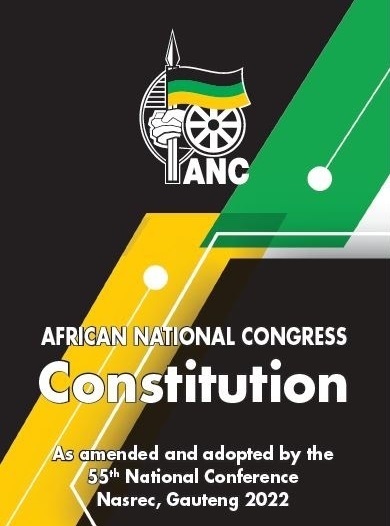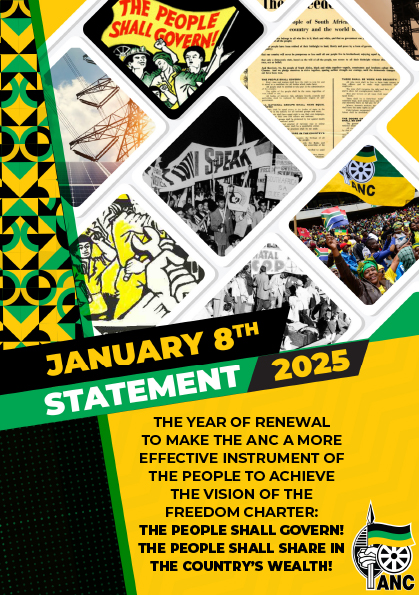The government identified the need to develop a transport master plan for South Africa that is comprehensive, multi modal, integrated, and dynamic, and provides a sustainable framework not only for implementing transport but also for providing infrastructure and service.
Most importantly, such a plan must seek to develop continuously and improve the efficiency and effectiveness of a multimodal transport system – a transport system that is well regulated and well managed within a multisectoral sphere of effective coordination within and cooperation between various government spheres, relevant private sectors, civil society partners and stakeholders up to 2050.
The Department of Transport through the implementation of its anchor strategy the National Transport Master Plan 2050 (NATMAP 2050), seeks to achieve the vision the vision of the National Development Plan 2030.
Investments in the transport sector will ensure that it serves as a key driver in empowering South Africa and its people by creating an enabling environment for:
- Improved access to economic opportunities, social spaces and services by bridging geographic distances affordably, reliably and safely.
- Economic development, by supporting the movement of goods from points of production to where they are consumed, facilitating regional and international trade.
- Mobility broadens social & economic access, alleviating poverty (NDP).
In his State of the Nation Address (February 2018), His Excellency, President Cyril Ramaphosa, acknowledged the need for job creation. “Infrastructure investment is key to our efforts to grow the economy, create jobs, empower small businesses and provide services to our people.
In my input today, I will focus my attention on the rail mode of transport and it’s important to the economy.
The Department is embarking on the Rolling Stock Fleet Renewal Programme (RSFR) as a catalyst for transformation of Metrorail services and public transport.
It is about the rollout of the Government’s Comprehensive Rail Programme over the next two decades.
Whilst the urgent challenge to improve passenger services remains primary, the RSFR Programme has been designed to achieve a number of key Government objectives such as delivery of quality services to citizens, revitalization of rail engineering industry through local manufacturing and ensuring local content (65 % minimum local content is set) as part of the Government’s Industrial Policy Action Plan (IPAP2), employment creation and skills development as well as Broad-Based Black Economic Empowerment.
The RSFR Programme is at its most exciting phase, with introduction of off-peak rail services in 2017.
The acceptance process has been accelerated with fifteen (15) new train sets being accepted and delivered at the Wolmerton Depot.
Job Creation
The Programme is expected to create approximately about 65 000 direct and indirect jobs over a 20-year period, with 33 000 direct and indirect jobs expected to be created in the first 10 years of the Programme.
This is based on a target to achieve a minimum of 65% local content on the new trains. As part of the first phase of the Programme, the Local Factory will directly employ about 1 500 employees of which 99% of the labour force will be South Africans, with a target of employing 85% historically disadvantaged South Africans and 25% females.
Progress to date, Gibela has created the following jobs:
- Overall 162 Jobs for Citizens;
- Of which, 145 Jobs for Black Citizens;
- Of which 144 Jobs for Skilled Black Citizens;
- Of which 82 Jobs for Women; and
- Of which 113 Jobs for Youth.
Skills Development
Skills Development is critical to enable the creation of meaningful sustainable jobs and as such the Rolling Stock Fleet Renewal Programme has a strong focus on Skills Development. Overall, Gibela is contracted to up-skilling 19 527 individuals during the implementation of the Programme.
There is a strong focus on skilling artisans and engineers as a result of the train manufacturing process. In early October 2016, Gibela launched the Maths, Science and English classes in the Duduza Community.
Gibela, through a three (3) year partnership with the Maths Centre and with the assistance of the Department of Basic Education, is assisting 450 learners from seventeen (17) schools in Nigel, Duduza and Kwa-Thema with maths, science and English classes on Saturdays. The classes are intended to provide extra support to learners in Grade 10, 11 and 12.
There are 50 learners in each class, with one educator per class. Gibela has committed to fully cover the cost of teaching aids for the educators and learning aids for the students at an estimated cost of R6.7 million over the three-year programme.
By the end of the Programme, Gibela would have, at minimum, achieved the training of 6 766 Artisans, 1 957 Engineering Technicians and 596 Professional Engineers. To enable this, Gibela is expected to spend 1.75% of the Contract Value (approximately R928 million) towards Skills Development.
This will include the development of training centres as well as providing bursaries across the different disciplines. Gibela has started with the process of training and up-skilling newly appointed employees focussing mainly on women and youth.
Youth Development
The Rail Safety Regulator (RSR)’s comprehensive development programme for the 2017/18 financial year was effectively implemented and continues to provide valuable learning and training in line with the youth development agenda of the country.
During the period under review a total of eighteen (18) interns participated in the RSR’s internal training programme.
Pursuant to the completion of the internship programme, two (2) interns progressed to the Trainee Inspector programme, fifteen (15) were absorbed into the RSR structure and one (1) intern resigned.
In support of the national agenda of youth development, the RSR has provided financial support to youth pursuing academic excellence in various academic institutions around the country.
The support accorded to the youth is providing significant assistance in developing qualified capacity for the South African labour market.
To date a total of fifty-two (52) youth have been provided with the financial support as part the youth development initiative.
Woman Empowerment and Persons with Disabilities
This financial year has been a progressive one with respect to the RSR’s continued effort in the empowerment of woman and persons with disabilities.
The RSR has made significant strides in line with the national agenda on woman empowerment – women constitute 51% of the total staff complement. During this period, RSR also appointed persons with disabilities in line with the set employment equity target. To date, 1% of staff complement is made up of persons with disabilities.
The RSR is committed to advancing the empowerment of woman and persons with disabilities through reasonable accommodation and creating a conducive and favorable environment.
By Blade Nzimande, Minister of Transport (SA)





